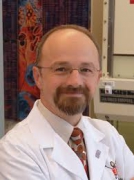Mervin C. Yoder, Jr.
Distinguished Professor (Emeritus) - 2013
Richard and Pauline Klingler Professor of Pediatrics (Emeritus) - 2004

Caring and talented physician, world-class scientist, pioneering entrepreneur, effective teacher and mentor, and successful leader. Combine all these characteristics with research that has fundamentally altered our understanding of two key biological processes, and you have Mervin C. Yoder, newly designated distinguished professor at Indiana University. As a neonatologist, Yoder treats the youngest patients, whose conditions inform and drive his research. As a developmental hematologist, he conducts research that has changed scientists' understanding of the early development of the hematopoietic system - the critically important stem and other precursor cells that are responsible for production of the cells of the blood and immune systems.
Using techniques similar to those he developed to unlock the developmental secrets of hematopoiesis, Yoder's work has also fundamentally altered the understanding of the development and nature of the endothelial cells that make up the inner linings of blood vessels. This work has significant implications for better understanding and developing new therapies for a broad range of cancers, as well as hematological, vascular, and immune system disorders. "I can attest with great enthusiasm that his work has transformed my personal approach to hematology and vascular biology, and greatly influenced the field of hematopoietic stem cell biology in general," says George Q. Daley, the Samuel E. Lux IV Professor of Hematology/Oncology and director of the Stem Cell Transplantation Program at Harvard Medical School. "In fact, I recall a few years back the shock I felt when I learned that he was actually a neonatologist and not a hematologist, because his corpus of research had so fundamentally challenged the core set of assumptions in my field." "There is no doubt in my mind that Mervin C. Yoder has transformed and substantially advanced the field of developmental hematopoiesis, as is evident in his publications from the mid-1990s to the present time," says Stefan Karlsson, professor of molecular medicine and director of the Hemato-Linne Program at Lund University in Sweden. "Dr. Yoder is generally thought of as one of the five top worldwide leaders in this demanding and difficult field of developmental hematopoiesis." "I have followed Dr. Yoder's scientific work very carefully," says Hiromitsu Nakauchi, professor and director of the Centre for Stem Cell Biology and Regenerative Medicine at the University of Tokyo. "This is because his science has always been so innovative, reliable, and cutting edge, yielding insightful, elaborative, and highquality work." Yoder's work, Nakauchi says, has resulted in "rewriting the textbooks on hematopoiesis."
Beyond growing his own research enterprise, as director of the Herman B Wells Center for Pediatric Research, Yoder has worked to build scientific programs at the Indiana University School of Medicine and in the Wells Center. His work has led to the creation of a successful biotechnology company, and his leadership and interest in translating discoveries into new treatments have led to his appointment as assistant dean for entrepreneurship at the School of Medicine. An international leader in his field, Yoder was president of the Society for Hematology and Stem Cells from 2007 to 2008. He is a soughtafter speaker at local high schools and churches, universities across the country, and scientific symposia around the world.
In 2020, Dr. Yoder was presented the Bicentennial Medal for his distinguished service to Indiana University.

